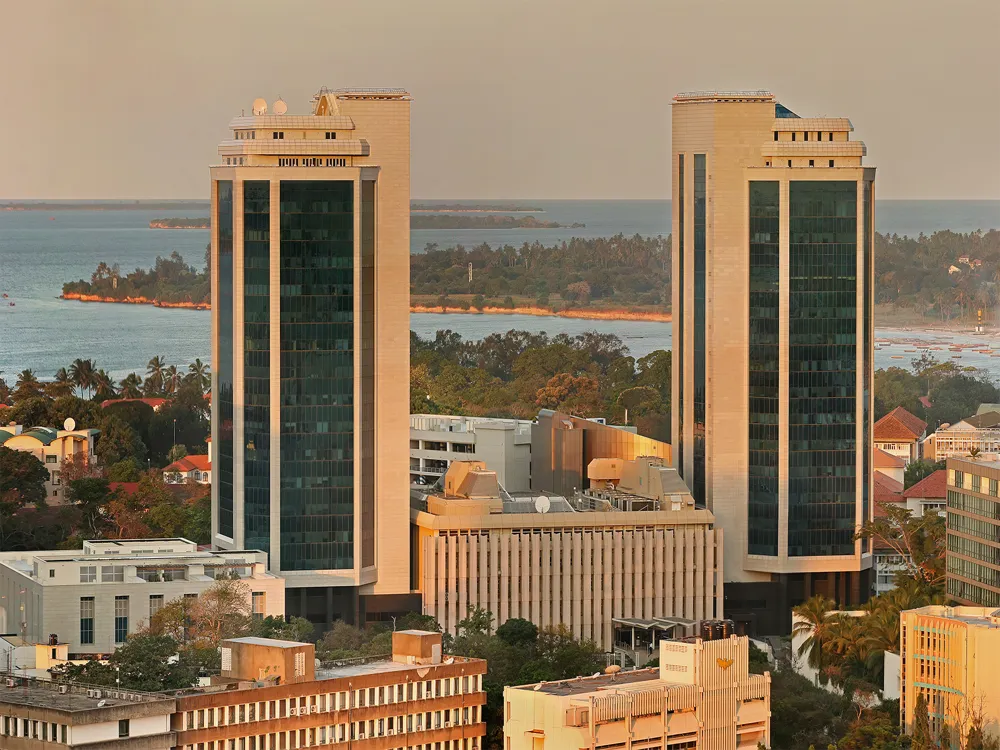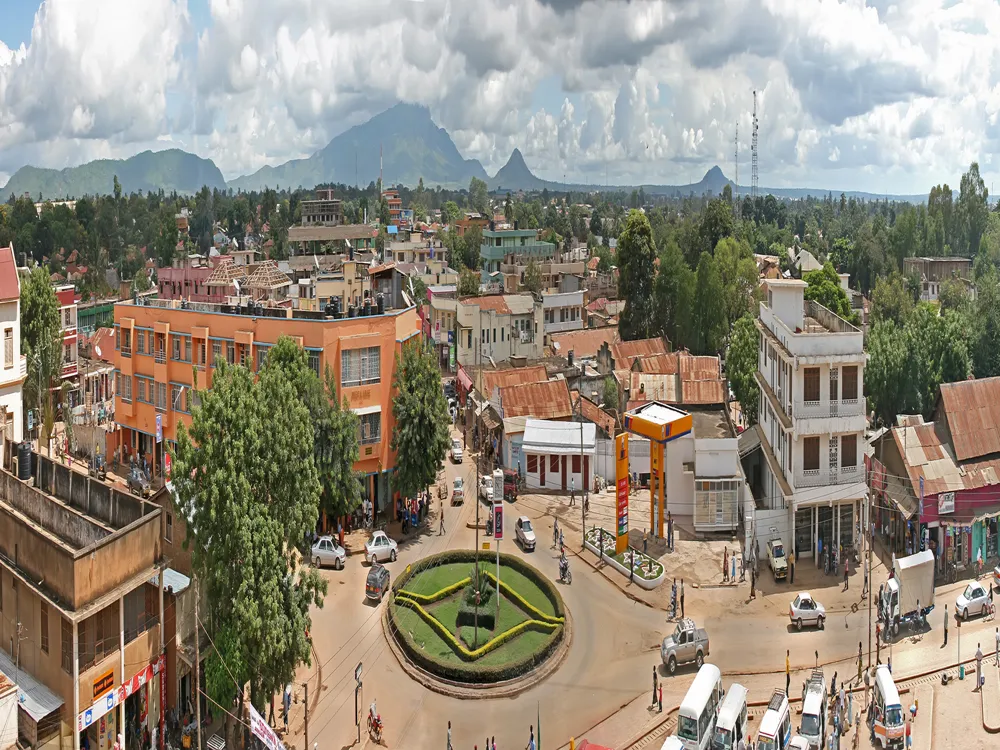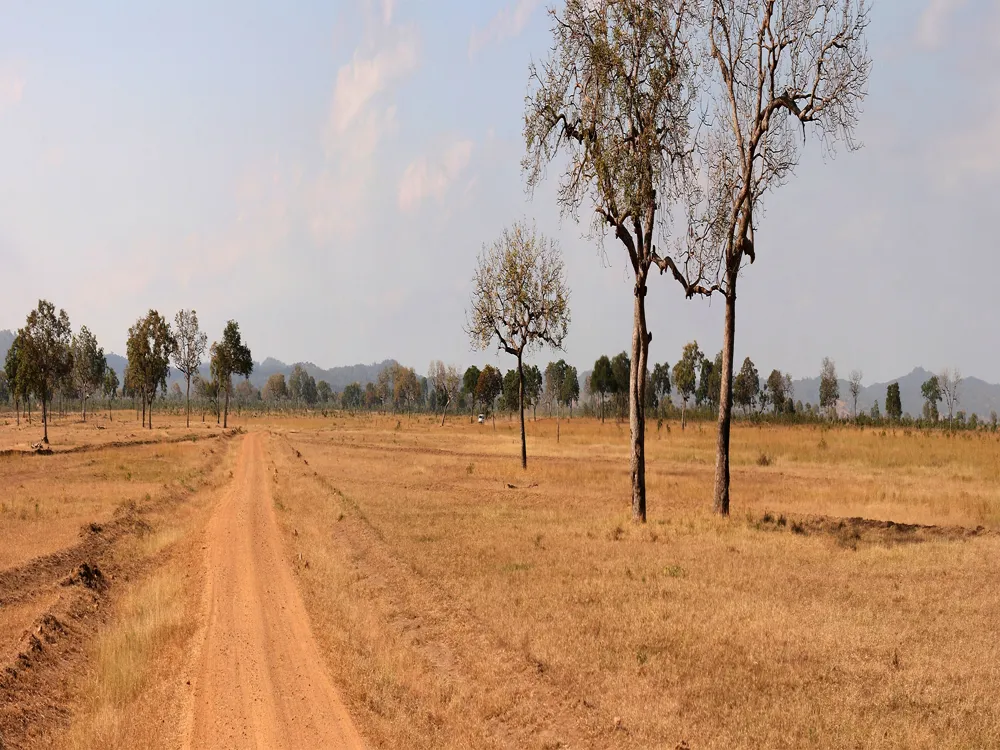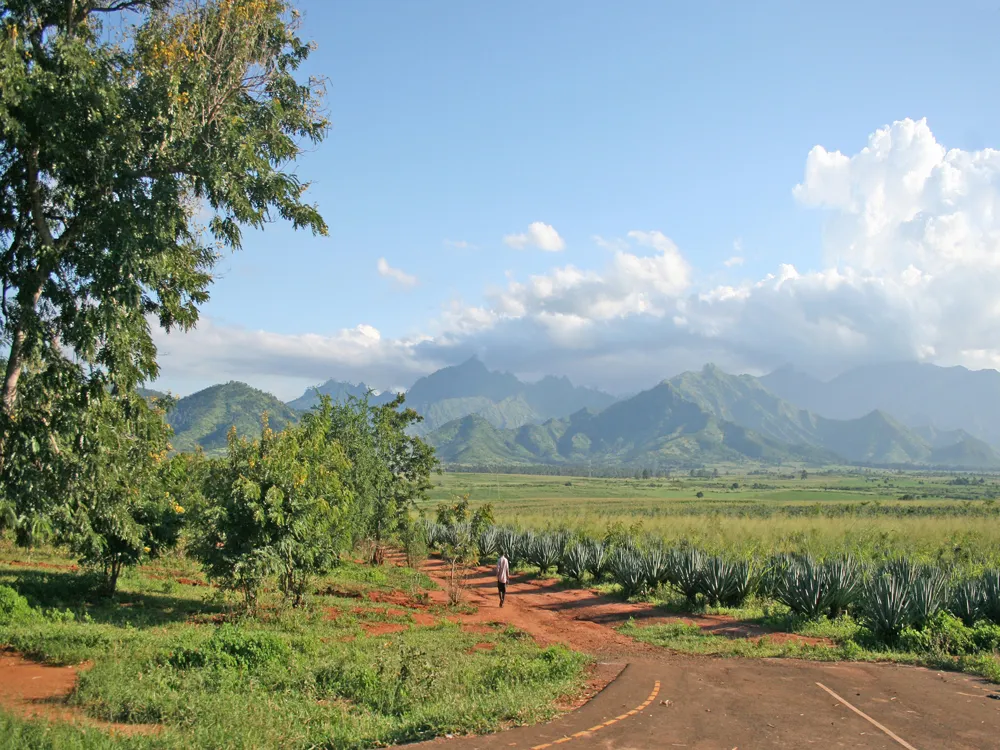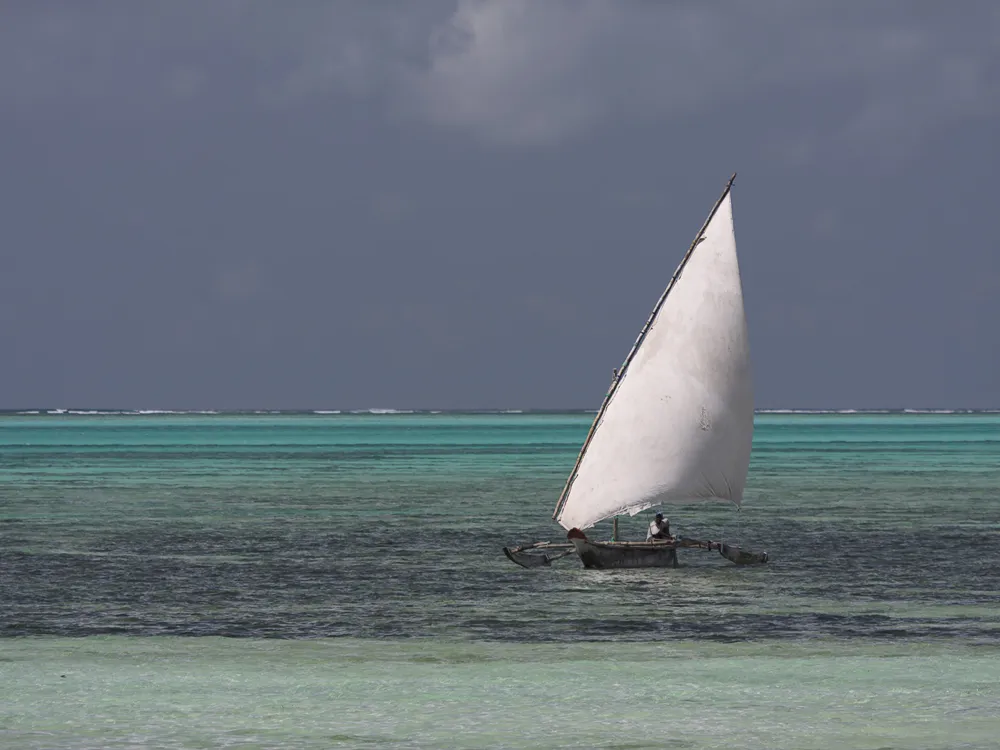Plan Your Travel To Tanzania
Tanzania Travel Essentials
Currency: Tanzanian Shilling (TZS)
Best Time: July-October, December-March Read More
Budget: Moderate
"The Canvas of Natural Beauty"
Tanzania Tourism
Tanzania is a treasure in East Africa, renowned for its varied animals, breathtaking scenery, and vibrant culture. The world is well-known for the amazing wildlife migrations and pristine ecosystems found in the Serengeti National Park and Ngorongoro Crater. Climb Africa's tallest mountain, Mount Kilimanjaro, or unwind on Zanzibar's beautiful beaches. Zanzibar's ancient Stone Town and the colourful Maasai tribe are two pieces of Tanzania's cultural fabric. For those seeking adventure, wildlife, and cultural immersion in the heart of Africa, the nation is an enticing destination due to its friendly hospitality and tasty food, which includes meals like pilau and ugali.
Must Know Before You Travel to Tanzania
- Visa Requirements: Check the visa requirements for your nationality and ensure your passport is valid for at least six months.
- Health Precautions: Consider vaccinations, anti-malarial medication, and travel insurance.
- Currency: The Tanzanian shilling is the official currency, but US dollars are widely accepted.
- Cultural Respect: Be mindful of local customs and dress modestly, especially in more conservative areas.
- Safari Planning: Plan your safari well in advance, considering the best time for wildlife viewing.
- Safety: Tanzania is generally safe, but exercise caution in larger cities and crowded areas.
- Weather: Tanzania has a diverse climate. Coastal areas are hot and humid, while the inland regions can be cooler, especially at higher altitudes. Check the weather for your specific destinations and the time of year.
- Health Precautions: Check if any vaccinations are required before traveling to Tanzania. Malaria is present in some regions, so consult with your healthcare provider about malaria prophylaxis.
- Wildlife Safaris: Tanzania is renowned for its wildlife safaris, including the Serengeti National Park and the Ngorongoro Crater. Follow safety guidelines during safaris, and be respectful of the wildlife.
- Cultural Sensitivity: Tanzania is culturally diverse. Respect local customs and traditions, especially in rural areas. Dress modestly, particularly when visiting villages or religious sites.
- Local Cuisine: Tanzanian cuisine is diverse, with influences from Arabic, Indian, and African culinary traditions. Try local dishes like ugali, nyama choma (grilled meat), and pilau rice.
- Tipping: Tipping is customary in Tanzania. In restaurants, a service charge may be included, but it's common to leave a small additional tip. Safari guides and hotel staff also appreciate tips.
- Transportation: Public transportation is available, but private transportation is often more convenient, especially for safaris and traveling between cities. Domestic flights are also common for reaching remote areas.
Tourist Places to Visit In Tanzania
Tanzania Travel Packages
Compare quotes from upto 3 travel agents for free
View All Packages For Tanzania
More on Tanzania Travel
All collections about Tanzania
Best time to visit Tanzania
You may select Tanzania's dry season, which runs from late June to October, for a very unique experience. This is the best time of year to see animals since the Great Wildebeest Migration takes place in the Serengeti from June to July. Come in late January or early February when the wildebeest calves are born if you enjoy watching babies. The southern and western parks are at their best during the dry season, but the northern parks are fantastic all year. With warm, steady weather and a bright sky, this time of year—especially from June to October—is ideal for safaris since it makes it easier to witness the breathtaking Great Migration and wonderful wildlife. Within the Serengeti, it takes place between June and July. Come in late January or early February when the wildebeest calves are born if you enjoy watching babies. The southern and western parks are at their best during the dry season, but the northern parks are fantastic all year. With warm, steady weather and a bright sky, this time of year—especially from June to October—is ideal for safaris since it makes it easier to witness the breathtaking Great Migration and wonderful wildlife.
Read More on Tanzania Travel
Exchanging money in Tanzania:
When visiting Tanzania, it's essential to be aware of currency exchange. The official currency is the Tanzanian Shilling (TZS), and while major cities and tourist areas have ATMs, it's wise to carry some US dollars as backup. Local banks and exchange bureaus are the best places for currency conversion, offering competitive rates. Credit cards are accepted in upscale hotels and restaurants, but cash is king in many places. Be cautious with street money changers, and always count your money. It's advisable to exchange money in advance to ensure a smooth transition during your Tanzanian adventure.
Nightlife in Tanzania:
Tanzania's nightlife offers a diverse and vibrant scene. In cities like Dar es Salaam and Zanzibar, you'll find a mix of bars, clubs, and live music venues. Locals and tourists come together to enjoy traditional dance and modern beats. Be sure to try local beers like Safari and Kilimanjaro. On the idyllic island of Zanzibar, night markets serve delicious seafood. Remember that nightlife can be more subdued in smaller towns and rural areas, so your experience will vary based on your location. Respect local customs, and have a memorable time exploring Tanzania's nightlife.
Shopping in Tanzania:
Tanzania offers a unique shopping experience, with a focus on traditional crafts and local products. Vibrant markets like the Maasai Market in Arusha and the Kariakoo Market in Dar es Salaam are great places to buy handcrafted jewelry, colorful fabrics, and wooden carvings. You can also find stunning gemstones like Tanzanite. Don't forget to haggle when bargaining for prices. For a more upscale shopping experience, explore boutique stores in major cities. Keep in mind that many shops close on Sundays, so plan your shopping spree accordingly and take home a piece of Tanzania's rich culture.
Festivals in Tanzania:
Tanzania hosts a variety of vibrant festivals celebrating its diverse cultures and traditions. The Zanzibar International Film Festival (ZIFF) is a renowned event showcasing African cinema. In Dar es Salaam, the Sauti za Busara Music Festival is a celebration of African music and the arts. For a taste of local culture, the Mwaka Kogwa festival in Zanzibar features traditional rituals and games. The Maasai people celebrate Enkai, a time for song, dance, and feasting. These festivals provide a unique opportunity to immerse yourself in Tanzanian culture and create lasting memories.
Hygiene in Tanzania:
Maintaining good hygiene practices while in Tanzania is essential for a safe and healthy journey. Drink bottled water to avoid waterborne illnesses, and be cautious with street food. Use hand sanitizers and wash your hands frequently, especially before meals. Malaria is a concern in many areas, so consult a healthcare professional for proper prophylaxis. Carry insect repellent to protect against mosquito-borne diseases. If trekking or going on safari, pack appropriate medications and first-aid supplies. Respect local customs and environmental conservation efforts, like not littering, to contribute to Tanzania's overall hygiene and well-being.
Tips for visiting Tanzania:
- Visa and Vaccinations: Check visa requirements and ensure you have necessary vaccinations, like yellow fever, before entering Tanzania.
- Currency: Carry Tanzanian Shillings for local purchases, but have US dollars as a backup.
- Wildlife Safaris: Book safaris with reputable operators for a memorable wildlife experience.
- Dress Code: Dress modestly in rural areas and near religious sites, but casual wear is acceptable in cities.
- Language: Swahili is widely spoken, but English is also common in urban areas.
- Respect Local Customs: Show respect for local customs, traditions, and wildlife conservation efforts.
- Health Precautions: Use insect repellent, drink bottled water, and take malaria prophylaxis.
Food in Tanzania:
Tanzanian cuisine is a delightful blend of flavors influenced by Indian, Arab, and African traditions. Must-try dishes include "Ugali," a maize porridge, and "Nyama Choma," grilled meat often served with a spicy sauce. "Pilau" is a fragrant rice dish, and "Zanzibar Mix" offers a taste of the coastal cuisine with seafood and spices. For a unique experience, visit local street food stalls to savor samosas and "Mishkaki" skewers. Fresh fruits like mangoes and pineapples are abundant. Pair your meals with "Chai" (tea) or "Kahawa" (coffee) for an authentic Tanzanian culinary adventure.
Photos of Tanzania
All Country Photos Tanzania
Popular Questions And Answers on Tanzania
What is the best time to visit Tanzania for a safari?
The best time for a safari in Tanzania is during the dry season, which is from June to October. This period offers excellent wildlife viewing opportunities due to the animals congregating around water sources.
Is it safe to visit Tanzania for tourists?
Tanzania is generally a safe destination for tourists. However, it's essential to take common-sense precautions, like avoiding isolated areas at night and being aware of your surroundings, to ensure a safe and enjoyable trip.
What are the top national parks to visit in Tanzania?
Some of the top national parks in Tanzania include the Serengeti, Ngorongoro Conservation Area, Tarangire, and Lake Manyara. These parks offer incredible wildlife experiences and stunning landscapes.
Do I need a visa to visit Tanzania as a tourist?
Yes, most tourists require a visa to enter Tanzania. You can obtain a visa on arrival at the airport or apply for one in advance at a Tanzanian embassy or consulate.
What vaccinations are recommended before traveling to Tanzania?
Yellow fever vaccination is mandatory for travelers to Tanzania. Additionally, it's advisable to have vaccinations for hepatitis A and B, typhoid, and take malaria prophylaxis.
What is the currency used in Tanzania, and can I use credit cards?
The Tanzanian Shilling (TZS) is the official currency. While major cities and tourist areas accept credit cards, it's recommended to carry some cash, especially when visiting remote areas.
What languages are spoken in Tanzania?
Swahili is the official language, but English is widely spoken, especially in tourist areas. Learning a few basic Swahili phrases can enhance your travel experience.
Is it necessary to hire a local guide for safaris in Tanzania?
Hiring a local guide is highly recommended for safaris in Tanzania. They are knowledgeable about the wildlife, can navigate the terrain, and enhance your overall safari experience.
What are some cultural customs and etiquette to follow in Tanzania?
When visiting Tanzanian communities, it's important to dress modestly and ask for permission before taking photographs. Handshakes are common as a sign of respect, and it's polite to greet people with
Can I climb Mount Kilimanjaro without prior experience in mountaineering?
Yes, it is possible to climb Mount Kilimanjaro without prior mountaineering experience. However, you should be physically fit and choose a reputable tour company that provides guides, porters, and proper equipment for a safe ascent.

